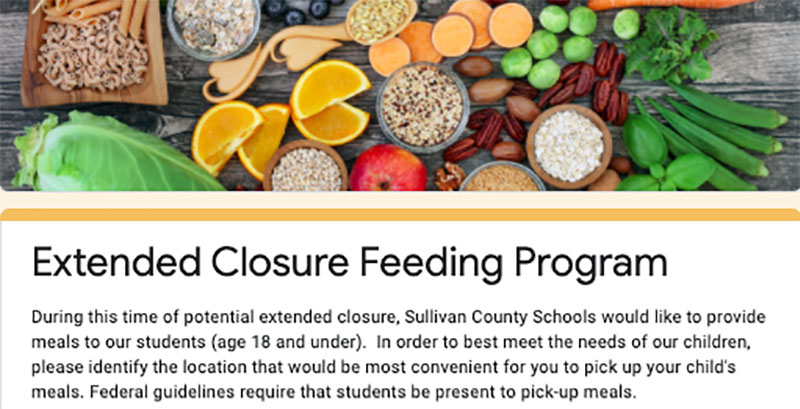Pondiscio: At This Time of Crisis, Schools Are Improvising, Innovating and Scaling Good Ideas With Love, Loyalty & Care. These Days Will Shape Us Forever

“Humans don’t mind hardship, in fact they thrive on it; what they mind is not feeling necessary. Modern society has perfected the art of making people feel unnecessary.” — Sebastian Junger
Those of us with parents or grandparents who lived through the Great Depression and World War II sometimes envy their experience and how it shaped them. No sane person wishes for hard times and deprivation, but there’s a sense of purpose that overtakes us when normal life stops. How remarkable — how clarifying — to have been alive in such times.
Events are conspiring, as they sometimes do, to make us feel purposeful again. Perhaps for a few weeks, perhaps quite a bit longer, even the simple act of staying home, forgoing the pleasures of a ballgame, a drink with friends, a church service, a hug or a handshake, is a matter of national urgency. Our collective action and attentiveness are demanded. Don’t feel ashamed if you feel a tingle of excitement about all this. You were made for this. It feels good to feel necessary.
Before COVID-19 canceled school nationwide and turned America overnight into Social Isolation Nation, I’d been on the road, visiting far-flung schools, meeting with educators and recharging my batteries. One memorable stop was in Sullivan County, a small rural school district in eastern Tennessee. My visit was little more than a drive-by, just a few hours on a February morning. But it didn’t take long to notice that this small, rural district had a cohesive culture of learning and caring for kids.
When schools closed in mid-March, the immediate concern in Sullivan County, as in so many districts, was ensuring that thousands of kids who rely on school meal service could still be fed. With a tiny district staff, the logistics of organizing such an effort were daunting. The leadership team posted a call for help on Facebook. In less than 24 hours, 125 teachers had volunteered, and “Sullivan Serves” was up and running. On the first Monday, 6,000 meals were distributed — school meals for children, plus donations from food banks and community groups for other family members. School cafeteria staff prepared the meals, which were distributed entirely by volunteer teachers.
The first two weeks of the crisis spanned a scheduled spring break, buying the district time to get its remote learning plans in place to launch April 1. Neighboring districts pooled resources to “build the train tracks of content,” as Robin McClellan, supervisor of elementary curriculum and instruction, put it, and to get teaching materials in the hands of all 600 Sullivan County teachers. Digital devices are being made available to families who need them, but it’s all being offered both digitally and in print. McClellan is adamant: “We are not going to teach only the children who have resources and devices,” she told me. “So any child who needs print can either pick it up at the school or it will be delivered to them.” That means a lot of making copies — and a lot more volunteers organized by the district’s principals. “I wasn’t going to put that on them,” McClellan said. “But they were like, ‘No, you’re not doing that. We’re doing that.’”
I tell this story not because it is remarkable, but because it is unremarkable. Stick a pin in a map, and there you will find similar tales of teachers and administrators doing what needs to be done, whether it’s feeding families, creating educational videos or live online lessons and activities, or just checking in on kids. One South Dakota sixth-grader needed help with her math homework; her teacher showed up at her home with a whiteboard and taught from the other side of her porch door. Social media is awash with posts from parents grateful for the efforts of their child’s teacher, even if it’s simply reaching out to make sure kids are safe, connected and reassured.
Those of us who work in education policy gnash our teeth in frustration at our inability to get best practices to scale. Yet one idea that sprang up organically, and that is now being replicated dozens of times a day all across the country, involves motorcades of teachers parading down the streets where their students live, while gleeful kids stand curbside, holding signs and waving at the teachers they haven’t seen in weeks. These humble little processions are not contractually required, a response to accountability demands or an “innovation” hatched at a think tank or conference. It’s a simple act to show children that the people they love and depend on are still here and still care. I doubt many teachers view it as burdensome. They probably get as much from it as the kids. It feels good to feel needed.
This is not to suggest that efforts to transition American education on the fly to remote learning are a fool’s errand. If we feel necessary right now, it’s because the things we value and that sustain us are at risk and need protecting: the lives and health of our family and friends. Our jobs and businesses. Continuing with school in any shape or form is one way in which we signal to our children what matters, even in hard times, even if the conditions for learning are less than ideal. The effort matters. It’s necessary.
Trust me on this: There’s a good chance that, years from now, you will feel a bit sentimental for these weeks spent in social isolation. We’re built for challenging times. We are writing the stories we will tell our children and grandchildren. Driving down a suburban street waving to elementary school children may not have the historical gravity of landing on Omaha Beach or working on a wartime assembly line. But when the children of the pandemic are old and gray, they will reminisce about the time their teachers paraded past their house because all the schools were closed. It will be a warm memory, even though so many people got sick, lost their jobs and were afraid. They don’t have the vocabulary today to describe it, but the lesson will stick and become clearer in the retelling. It’s about social cohesion, love and loyalty, and how good people step up when we need them to.
Robert Pondiscio is a senior fellow at the Thomas B. Fordham Institute and teaches civics at Democracy Prep, a Harlem charter school. He is the author of the new book “How the Other Half Learns” (Avery, 2019).
Get stories like these delivered straight to your inbox. Sign up for The 74 Newsletter

;)
